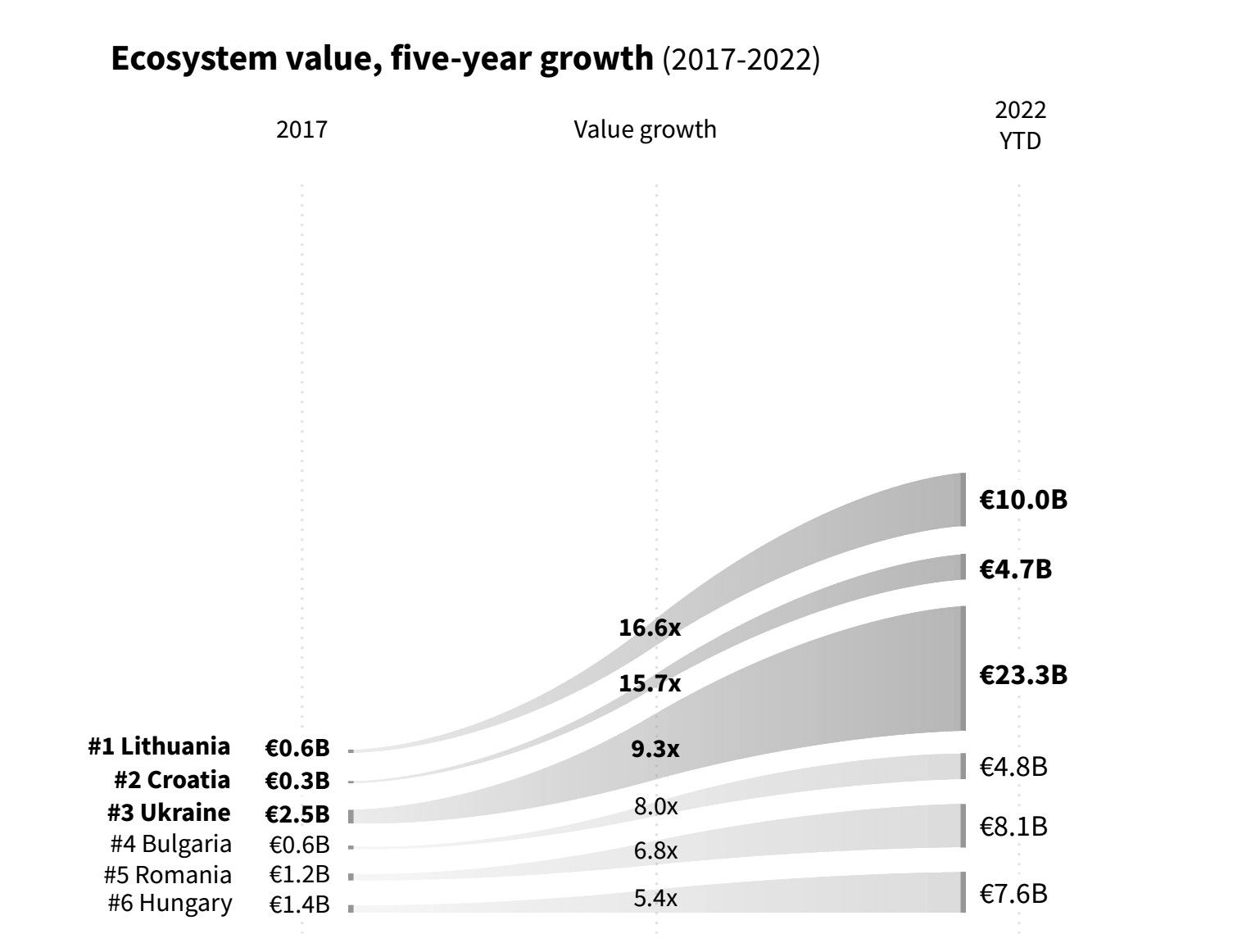Time to go

Lithuania Tech Weekly #94
Subscribe at philomaths.tech, ongoing updates on LinkedIn
Advertise here
Join TP Membership Circle with some great minds already there.
work in progress
- People on the move. If not yet, very soon startups & scale-ups will be taking all the best talent locally. Some recent hires include Raimund, CFO, Kilo Health; Simona, Head of Marketing, ConnectPay; Vytautas Noreika, Product Owner, Orbio World; Gabriele, new Chief Customer Officer at Oxylabs; Tomas, Chief Information Officer, CoinGate; Adolfas, VP Ops at Oxwash (UK); Mantas, COO, Nanoavionics.
- People move back. See our interview with co-founders of Delta Biosciences, as they surface from stealth mode (below).
- Machines on the move. After $100B invested, self-driving might not be going anywhere. So Lukas with Bolt launches car rent service in Tallinn. As we know, People Hate the Idea of Car-Free Cities (not a full title). Green Mobility Hackaton winners are building Waze for cyclists. Before it's completed, watch out for these hoppers IRL. Related, Gravitacija Mes Tikim 2021 revenues.
- Represent. Tom Okman speaking at Web Summit. LT team among top 3 finalists at GovTech Awards.
- Sensors. Volatile AI ships first full unit of Scout2 gas sensor. BROLIS Herdline real-time multi-molecule milk analyzers on the way to the farm.
- CEE. Google, Dealroom, Atomico and Credo releases CEE report, which essentially tells you.. invest into the region. Astonishing value creation and venture investments are growing 2x compared to other European regions.

rounds and capital
- Deepfin raises EUR 685k from Superhero Capital (active!), Iron Wolf Capital, and angels. Finance management for freelancers and gig workers.
- Inventure closes EUR 150m fund, active across the region and scanning LT
- Orion Ventures will be sourcing in Estonia, too - joined EstBAN
roleplay
Klaipeda ID - Managing Director
Nexpay - Country Operations Manager
HUUS - Project & Customer Success Manager (Germany)
Mindletic - Account Executive
Nord Security - Innovation and Patent Manager
AIHunters - SDR
ColibrisODM - Export Sales Manager
founder / operator guide
- What valuation should you raise your round at?
- TAM Arbitrage
Early on, big things might start out feeling like a toy. But their ability to extend from one value proposition to the next, and address more and more of a market is the secret sauce you want to dream about.
Where do our letters arrive?

insights
- This map shows you how far you can travel by train from each station in Europe in less than 5 hours.
- Hacker stations - WFH workspaces from around the world
- Europe’s growing crowd of solo GPs - including Siim from Lemonade Stand
- Investor Ranking. Venture capital is hard. Only the best 2% invest in two or more unicorns at the seed stage
recommending
- Interview (in LT) with Mantas Mikuckas, highly recommended
- Superproduktas with Evaldas Urbonas, VP of Product at Omnisend
- Data people podcast - Duomenu Dede
three questions
Daniel Kratkovski and Dominykas Milašius, co-founders, Delta Biosciences

What is the problem Delta Biosciences is after?
We’re aiming to update the old-school way of discovering new compounds that might become medicines. The drug discovery process is a funnel that narrows down millions of chemical candidates to that one aspirin, but it takes an average of 10 years and costs $2B for a 0.02% chance of success.
Our solution helps biotechs screen more compounds quicker (months vs years), by leveraging large chemical libraries screened in small volumes. So instead of screening 10k compounds in a day, we can now do 50x that. And with every reiterative run, our models churn out better suggestions for potential candidates bridging the gap between quality in-vitro (lab experiments) and relevant in-silico (our predictive ML models).
Why now?
Commercially, the pharma sector has been long suffering from diminishing ROI on R&D. One solution to reverse this trend is outsourcing drug discovery projects to more agile biotech startups – recently hitting a 50% outsourcing mark. Plus, both the scientific and management innovations behind getting COVID-19 vaccines to market indicate that the pharma industry is ready to enter a new era. Hence, we’re going after a percentage of the 800 small-molecule discovery campaigns launched every year.
Scientifically, gene editing and sequencing unlocked a revolution in life sciences – the ability to programme biology almost as if it was a coding language; microfluidics has unlocked the ability to miniaturise experimentation; and ML-aided computational chemistry enables us to imagine an infinite number of molecules that might become medicines. Therefore, we’ve integrated all of these advances into one workflow that can fit on a bench.
What is your funding model - is it a venture-backed startup?
Our model is bootstrapping + grants: we have put up our own capital and secured a few R&D grants, totalling ±1.2M to date. This helped us install a lab; validate a basic PoC; and score the first partnerships to generate user feedback (e.g. COVID Moonshot; a medical school in the UK; and an international biotech startup). It’s still early, and we are focused on validation and commercial deployment. In the future, we would consider partnering up with someone who understands how to build breakthrough tech and can advance our mission to accelerate drug discovery.
The team page does not provide details. Who is behind this startup?
Most of our team are repatriates, returning to LT after careers abroad. Co-founders Dominykas Milašius and Daniel Kratkovski take care of business and operations, leveraging former experience in management consulting and VC. Our CTO Donatas Žmuidinavičius (Cambridge PhD, ex Unilever) manages an interdisciplinary R&D team of 5 and oversees the development of the drug discovery engine. We are currently exploring opportunities to open a lab abroad (potentially onboarding some international personnel – watch this space) and are always on the lookout for bright and resilient innovators interested in drug discovery.
Member discussion